From unlikely origins in sleepy Shropshire, the history of the Olympic Games has been characterised by stories of triumph over adversity and a very British sense of fair play
London will make history when it becomes the first city to have hosted three Olympics. The 2012 Olympic Games promises to be a high point in Britain’s long association with the Olympic movement.
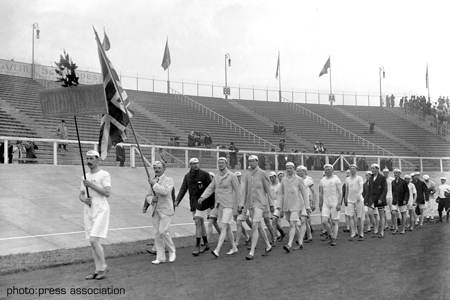
It’s a history that goes back even further than the first London Olympics in 1908. British athletes competed at the first modern Olympics in Athens in 1896, just as they have at every Games since –an honour no other nationality can claim.
To find the true origin of the modern Olympic movement, however, you need to go back still further, not to France or Athens, but to the unlikely setting of Much Wenlock in Shropshire. It was here that Dr William Penny Brookes, the local GP and an enthusiastic advocate of physical education, founded the Wenlock Olympian Class in 1850. It became an annual competition and, from 1852, included athletic events alongside football, cricket and quoits. Brendan Gallagher, author of The Games – Britain’s Olympic and Paralympic Journey to London 2012, describes Brookes as “a far-seeing visionary, possessed of an invaluable practical ability to simply get things done”. Within a decade, Brookes’ Games were attracting crowds of four or five thousand, and attention from overseas. One admirer was Baron de Coubertin, the French aristocrat who is generally regarded as the founder of the modern Olympic movement. In 1890 he spent four days with Brookes and enjoyed a sporting festival specially arranged in his honour.
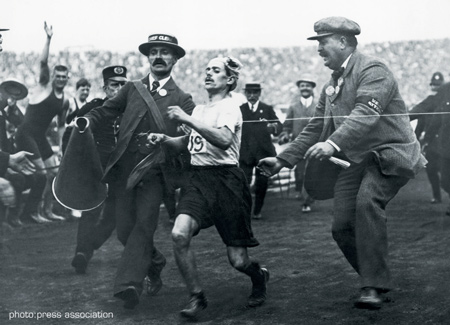
“The Wenlock Games were very influential in de Coubertin’s founding of the modern Olympics,” says Gallagher. It’s a debt that the long-time president of the International Olympic Committee, Juan Antonio Samaranch, acknowledged in 1994 when he laid a wreath on Brookes’ grave and described him as “the founder of the modern Olympic Games”. After a century of relative obscurity, Gallagher believes “Brookes is beginning to get the recognition he deserves”. Sadly, the self-effacing Shropshire GP didn’t live to see de Coubertin’s 1896 Olympics. The Games might have been held in London if it weren’t for the Baron’s preference for Paris, but with little support for the French capital, Athens was chosen as a compromise. Britain didn’t have to wait long, though, holding the Olympics in 1908. The Games were due to take place in Rome, but following the eruption of Vesuvius in 1906 funds were diverted to the rebuilding of Naples leaving the Olympics without a host city.
London stepped into the breach. “Edwardian Britain, at the height of the Empire, had been thrown this challenge, and the organisation and scale of the Games were a triumph,” says Gallagher.
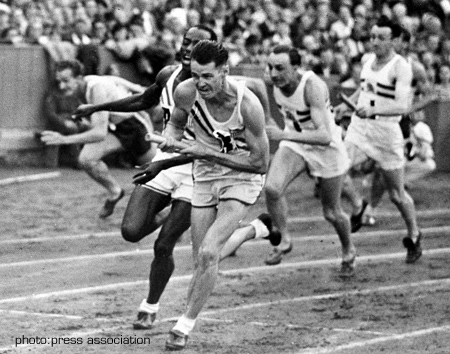
Not least among the challenges facing the London Games was the construction of the stadium in White City. “This state-of-the-art sports complex with a capacity of 93,000 was erected in ten months flat in West London,” Gallagher explains. “White City was regarded for a while as the eighth wonder of the world. It was constructed in a frenzy throughout 1907 and early 1908, with up to 12,000 labourers on site at the busiest times and work going on throughout the night under floodlights.”
Despite its hurried construction, the White City stadium continued to be a famous London landmark until its demolition in 1985. London 1908 was a success for home athletes as well as the event’s organisers: Britain won 56 gold medals to the USA’s 23.
However, the sporting tussle between the two nations wasn’t without controversy. In the 400 metres final, a lone British athlete, Wyndham Halswelle, faced three Americans. One of the US runners, John Carpenter, was disqualified for forcing Halswelle to run wide in the home straight. The two remaining American athletes withdrew, leaving Halswelle to compete alone in a re-run of the final. “For the only time in the history of the Olympic Games a competitor won a gold medal by virtue of a walkover,” says Gallagher. It was the American team’s turn to protest in the Tug of War. The USA entered a team at short notice, and squared up to one of three British entrants, the Liverpool Police. Heavy rain made for muddy conditions underfoot.
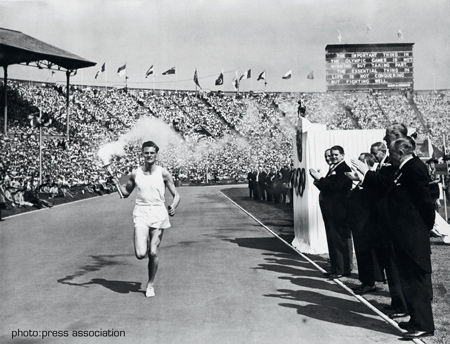
The Americans wore their lightweight athletic shoes while the British team wore their normal police boots, which had the advantage of steel rims on the heels. The Americans complained that the boots broke the rules, which stated “No competitor shall wear prepared boots or shoes or boots with any projecting nails tips, sprigs, points, hollows or projections of any kind.” The protest was thrown out on the grounds that the boots had not been specially prepared, but were standard police issue.
The Liverpool team duly won the first of three pulls, although many thought this due to the American athletes’ inexperience as much as the police’s gripping footwear. “The Liverpool Police offered to conduct a second pull in their stockinged feet to ensure absolute fair play, but by now the disgruntled Americans were no longer interested,” says Gallagher. “They had stormed off in high dudgeon, to jeers from the crowd.” The Liverpool Police team went on to win a silver medal, losing to their colleagues from the Metropolitan Police in the final.
Despite all its controversies, Gallagher believes the 1908 London Games was a watershed for the Olympic movement. “We can look back on a spectacular Games staged at short notice against overwhelming odds and highlighting that very British genius for combining meticulous detail with spur of the moment improvisation”, he says. London would next host the Games some 40 years later. The second London Olympics would be a very different occasion to the first.
In place of 1908’s Edwardian opulence, the 1948 games took place against a backdrop of reconstruction and rationing.
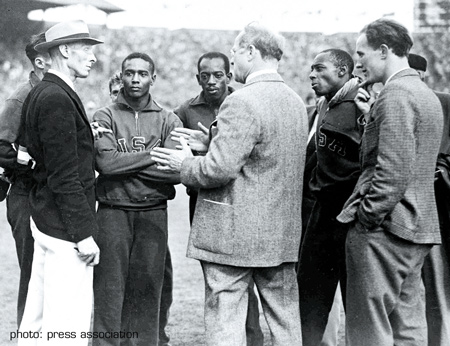
The 1948 event came to be known as The Austerity Olympics, as Gallagher explains: “This was a chance to show Britain was alive and kicking, but the Games had to be organised on a shoestring”.
In contrast to 1908, no new venues were built. Instead, it was a case of make-do and mend. “Wembley stadium was converted into an athletics track with almost no money spent,” says Gallagher.
Other countries rallied to help the British organisers. “The Dutch authorities, for example, sent over 100 tonnes of fresh fruit and vegetables in twice weekly shipments for general use, while the Danish government donated 160,000 eggs,” Gallagher explains. “Czechoslovakia contributed 20,000 bottles of mineral water. Austria, Switzerland and Ireland also contributed to the general kitty, and all competing countries were invited to bring as many of their own supplies as possible.”
The character of the Games also changed to reflect the times and contrasted with the world see that even in far-away Moscow it is better that men should run and jump against each other rather than to blow each other to pieces on the battlefield?” he wrote. “The approach is quite different from the 1936 Berlin Games. We want to see the best men win, no matter where they come from and who they represent.”
This sporting ethic was applied even at the expense of the British gold-medal tally. The three gold medals won by the host nation might have been four had the original result of the men’s 4×100 metres relay not been subsequently overturned. Gallagher tells the story: “The USA had actually won the race by five yards, but they were mysteriously disqualified for a faulty baton change. The British quartet thus accepted the gold medals on the podium in front of a very subdued home crowd before the decision was officially reversed three days later. Impressed, The New York Times reported the following day that: ‘The judicial victory awarded the British sprinters was the first time the British crowd had the opportunity to cheer a triumph by their countrymen. But the Britons disagreed with the judges. They did not want to win even one victory that way. They gave their loudest cheer to the disqualified Americans… that is sportsmanship at its best.’”
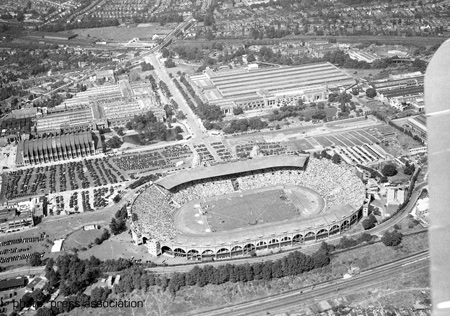
Although a modest Olympics for Britain in sporting terms, to organise the 1948 Games on such a tight budget in difficult times was every bit as great an achievement as the ebullient 1908 Olympics. The same year was also an important stepping-stone towards the founding of the Paralympics; the Stoke Mandeville Wheelchair Games was held on the day of the Olympic opening ceremony.
Next year, London will host both the Olympic and Paralympic Games, events on an entirely different scale to those of 1908 and 1948. Some 126 countries will send athletes to London 2012, compared with 22 in 1908 and 59 in 1948 and the expected global television audience of 4 billion dwarves the 80,000 or so spectators who squeezed into White City in 1908.
Even so, Gallagher believes the 2012 Games still have much in common with the early Olympics. “Beneath all the gloss and commercialism, sport always shines through. You still have favourites and outsiders, the superstars and the unexpected stars.”
Let’s hope for a 2012 Olympics Games to make Dr William Penny Brookes proud.

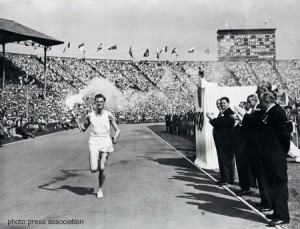
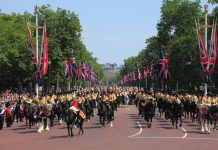



 © 2024
© 2024